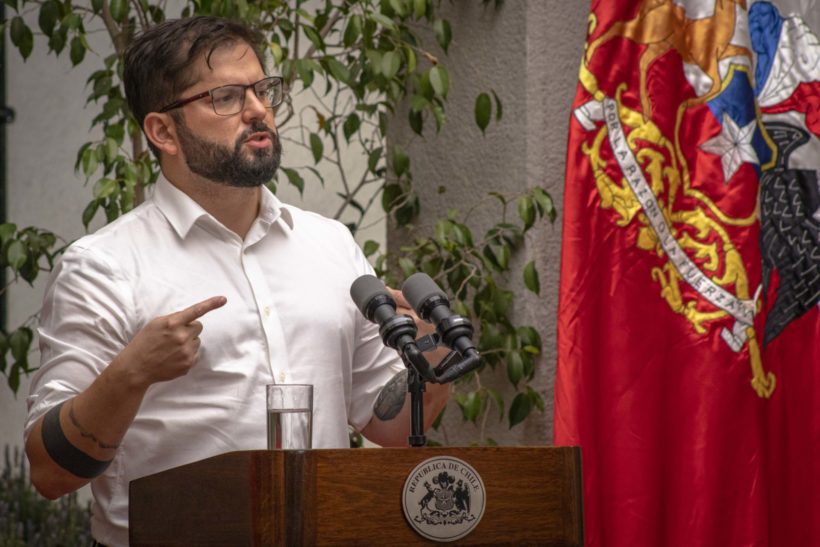On Sunday, the first month of the new government, President Gabriel Boric held a meeting with his entire cabinet in his private home located in the Yungay neighbourhood in downtown Santiago. Evaluating everything that has been done and also the mistakes that have been made, the president pointed out that “we have taken off with turbulence. These turbulences obviously generate uncertainty, but we are going to overcome them”.
In fact, in addition to the delay in appointing the heads of the Regional Ministerial Secretariats and other positions of trust, it is mainly some of the Interior Minister’s stumbles that have caused the greatest stir, due also to an oppositional press and the tendency to magnify any situation in which Izkia Siches has had to experience the learning experience of her new public function.
Shortly before the start of the meeting, the President approached the neighbours who were waiting for him outside the residence in Barrio Yungay, where he said that “we have completed one month and it is important to take stock of this first month and to deploy ourselves on the ground throughout the national territory”.
For her part, Minister Camila Vallejo commented on her arrival that “we are going to take stock of the first four weeks of installation, and then we are going to project what remains of the work for the month and probably a deployment in the regions, the whole balance has to do with both positive and self-critical evaluations of these four weeks”.
At this meeting, the president and the 24 ministers organised their deployment at national level, in all regions of the country, to implement the economic plan “Chile Apoya”, which was presented last week by President Boric.
Some of the axes of this proposal are: reincorporation into formal paid work, public investment, support for sectors lagging behind in the recovery, boosting MSMEs, income and cost of living, institutionalisation of economic and social protection mechanisms.
In more detail, President Boric reported that US$1.386 billion will be invested in job creation and support for sectors lagging behind, US$1.340 billion in direct aid to families and US$1 billion in support for MSMEs.
“It is not enough to say that we are a new government,” said Ministra Vallejo at the end of the meeting, “but it also requires recognising that we can do much better










